
Al Baha: Jewel of the Mountains
Nestled in the majestic mountains of the Hejaz region, Al Baha is a hidden gem in Saudi Arabia. Its lush forests, stunning valleys, and cool climate offer a refreshing escape from the desert heat. The city is known for its rich cultural heritage and welcoming locals, making it a must-visit destination for those seeking both adventure and relaxation. Al Baha boasts a blend of modernity and tradition, with ancient villages and modern amenities coexisting in harmony. The city's stunning architecture, including the famous stone towers known as 'qasabas,' offers a glimpse into its storied past. The lush Al Baha forests, such as Raghdan Forest, provide perfect spots for hiking and picnicking, while the scenic valleys like Wadi Al Shada are ideal for exploring. Visitors can also immerse themselves in the local culture by attending traditional festivals and markets. The city is famous for its unique handicrafts, including intricate woodwork and pottery, which make perfect souvenirs. With its breathtaking landscapes, rich history, and warm hospitality, Al Baha promises an unforgettable experience for all travelers.
Local tips in Al Baha
- Visit during spring or autumn to enjoy the best weather and blooming landscapes.
- Explore the ancient village of Zee Ain to see traditional stone houses and stunning views.
- Bring comfortable walking shoes for hiking in the lush forests and scenic valleys.
- Attend the annual Al Baha Summer Festival to experience local music, dance, and cuisine.
- Don't miss out on tasting local honey, a specialty of the region.
Al Baha: Jewel of the Mountains
Nestled in the majestic mountains of the Hejaz region, Al Baha is a hidden gem in Saudi Arabia. Its lush forests, stunning valleys, and cool climate offer a refreshing escape from the desert heat. The city is known for its rich cultural heritage and welcoming locals, making it a must-visit destination for those seeking both adventure and relaxation. Al Baha boasts a blend of modernity and tradition, with ancient villages and modern amenities coexisting in harmony. The city's stunning architecture, including the famous stone towers known as 'qasabas,' offers a glimpse into its storied past. The lush Al Baha forests, such as Raghdan Forest, provide perfect spots for hiking and picnicking, while the scenic valleys like Wadi Al Shada are ideal for exploring. Visitors can also immerse themselves in the local culture by attending traditional festivals and markets. The city is famous for its unique handicrafts, including intricate woodwork and pottery, which make perfect souvenirs. With its breathtaking landscapes, rich history, and warm hospitality, Al Baha promises an unforgettable experience for all travelers.
When is the best time to go to Al Baha?
Iconic landmarks you can’t miss
Raghadan Forest Park
Explore the lush landscapes and serene atmosphere of Raghadan Forest Park, a national treasure in Al Bahah, Saudi Arabia, perfect for nature lovers and adventurers.
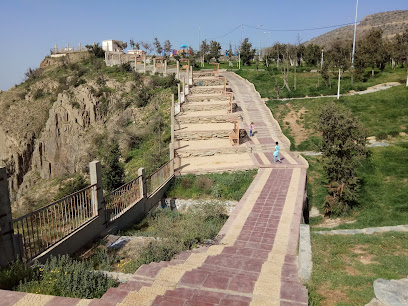
Prince Hussam Park
Experience the natural beauty and tranquility of Prince Hussam Park in Al Bahah, a perfect paradise for relaxation and family fun amidst lush greenery.
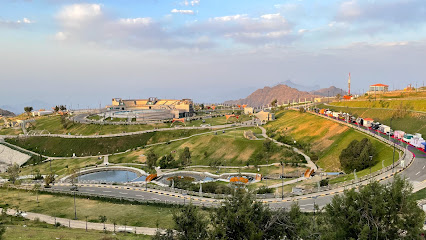
Khairah Forest Park
Explore Khairah Forest Park: A serene escape filled with lush greenery, scenic trails, and a tranquil atmosphere perfect for relaxation and adventure.
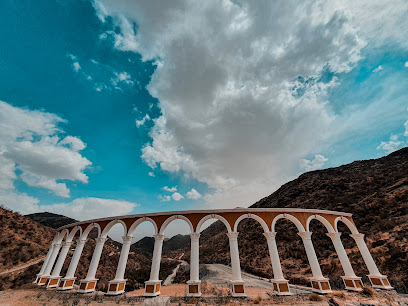
Thee Ain( Zee Ain or Dhee Ain) Ancient Village
Explore the captivating Thee Ain Ancient Village, a historical marvel showcasing the unique architecture and rich heritage of Saudi Arabia.
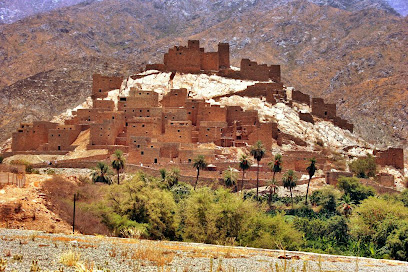
Park Prince Mishari Bin Saud
Explore the serene landscapes and vibrant flora of Park Prince Mishari Bin Saud, a perfect escape into nature's embrace in Saudi Arabia.
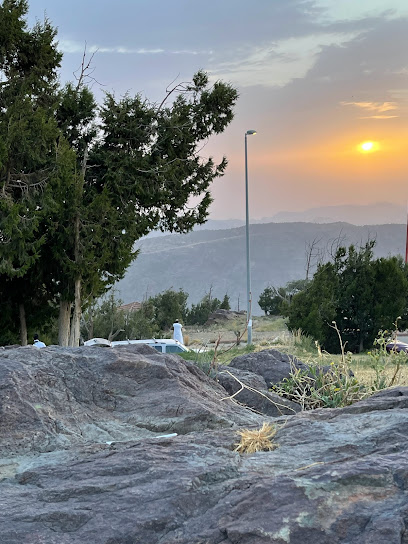
Al Hussam Public Park
Explore the natural beauty of Al Hussam Public Park, a serene green escape in Al Bahah, perfect for relaxation and family outings.
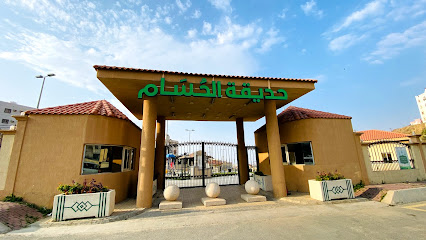
Prince Mohammed bin Saud Park
Discover tranquility in the heart of Al Bahah at Prince Mohammed bin Saud Park, a beautiful garden perfect for relaxation and family outings.
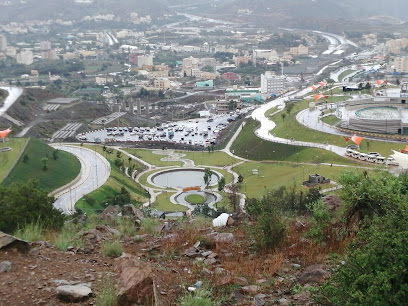
شلال جدر
Experience the serene beauty of Shalal Jadr waterfall in Kherah Forest Park, a breathtaking natural wonder perfect for relaxation and exploration.
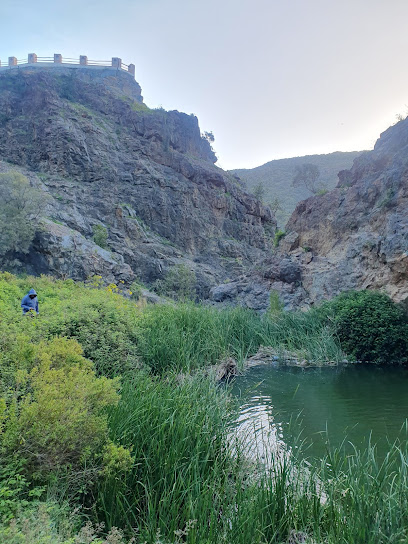
Prince Sultan bin Salman Park
Explore the lush landscapes and peaceful ambiance of Prince Sultan bin Salman Park in Alrawdha, a perfect garden escape for nature lovers.
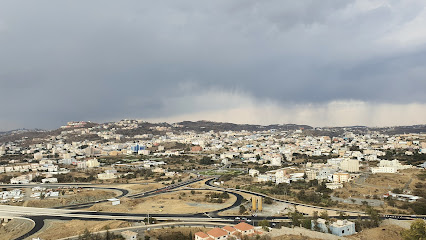
شلال قرية الحمدة
Experience the serenity of Al-Hamda Waterfall, a breathtaking natural wonder in Al Bahah, Saudi Arabia, perfect for relaxation and adventure.
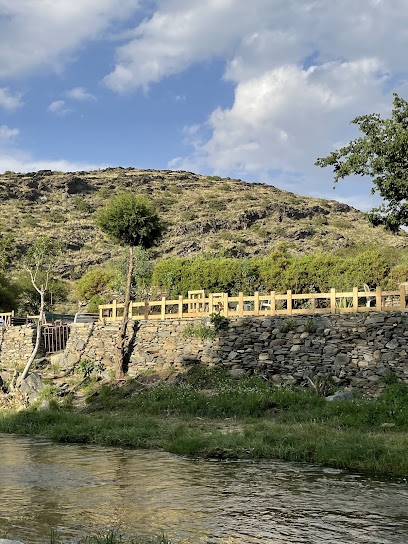
Bridge Botanical Garden
Discover the serene beauty of the Bridge Botanical Garden in Al Bahah, a lush paradise perfect for nature lovers and photography enthusiasts.
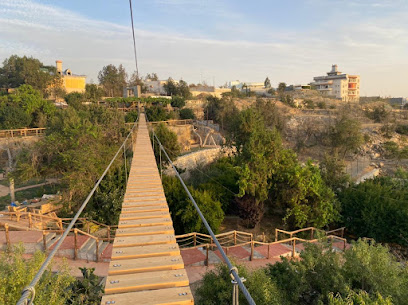
حديقة الشلال
Experience the beauty and tranquility of Al-Shallal Park in Abha, a lush green haven for relaxation, recreation, and family fun in Saudi Arabia.
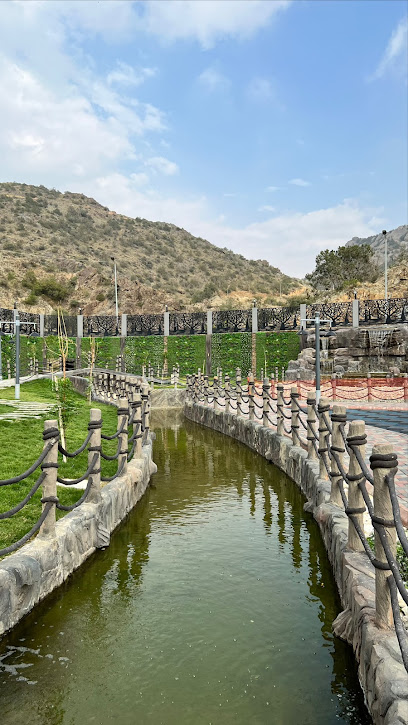
Shahba Park
Explore Shahba Park, a serene urban oasis in Shahbah, perfect for relaxation, leisure activities, and enjoying local culture amidst nature.
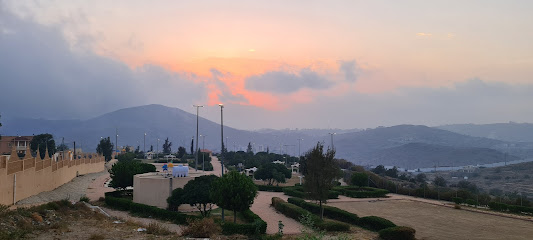
Hajjad Continental Plaza Hotel
Discover the perfect blend of comfort and culture at Hajjad Continental Plaza Hotel in Al Bahah, where modern amenities meet local charm.
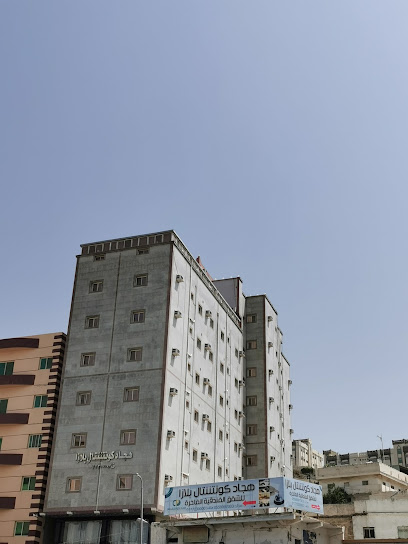
Humaida stairs
Discover the enchanting Humaida Stairs in Baljurashi, a cultural landmark offering stunning views and a taste of local heritage.
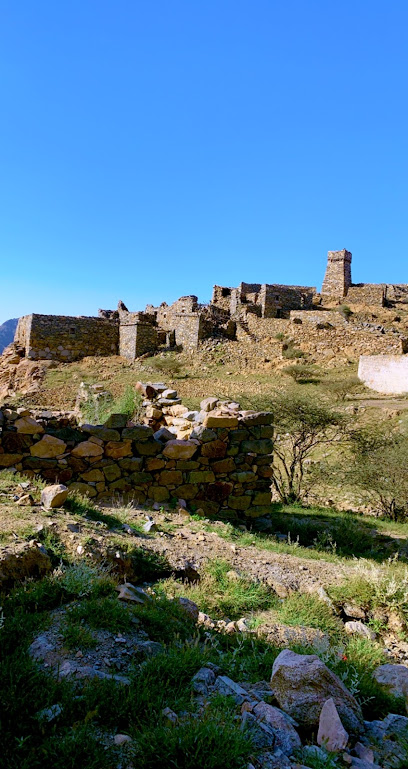
Unmissable attractions to see
Raghadan Forest Park
Raghadan Forest Park in Al Bahah is a stunning national forest and park, perfect for families and nature lovers seeking tranquility and adventure.
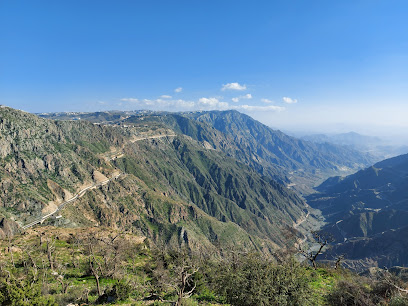
Prince Hussam Park
Experience the tranquil beauty of Prince Hussam Park in Al Bahah, a perfect retreat for nature lovers and families seeking relaxation.
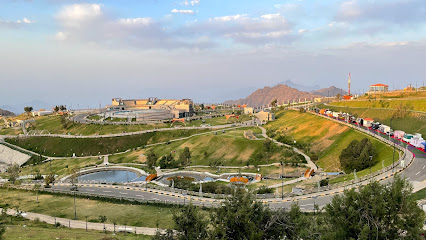
Khairah Forest Park
Explore the beauty of Khairah Forest Park, a serene destination for families and nature enthusiasts in Saudi Arabia's lush landscapes.
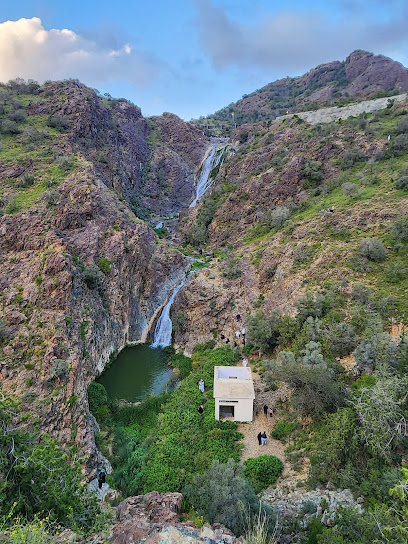
Thee Ain( Zee Ain or Dhee Ain) Ancient Village
Experience the rich heritage of Thee Ain Ancient Village, a captivating historical site showcasing traditional architecture and stunning natural landscapes.
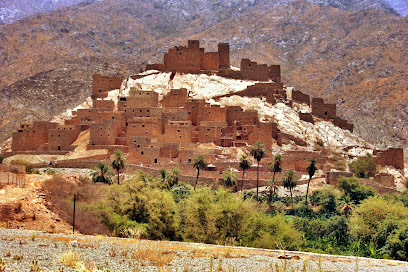
Park Prince Mishari Bin Saud
Explore the lush landscapes and recreational activities at Park Prince Mishari Bin Saud, a serene state park perfect for relaxation and family fun.
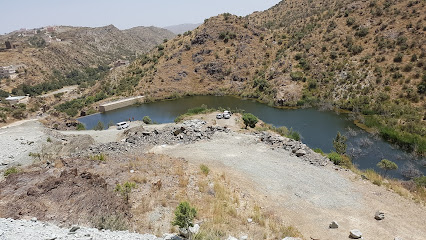
Al Hussam Public Park
Discover the serenity of Al Hussam Public Park in Al Bahah, a lush green oasis perfect for relaxation, picnics, and family outings.
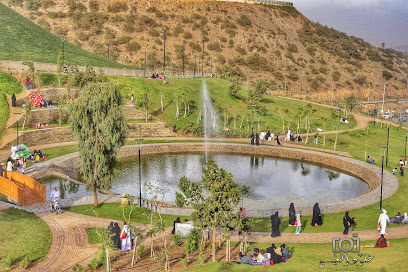
Prince Mohammed bin Saud Park
Explore the serene beauty of Prince Mohammed bin Saud Park, a lush garden oasis in Al Bahah, perfect for relaxation and family outings.
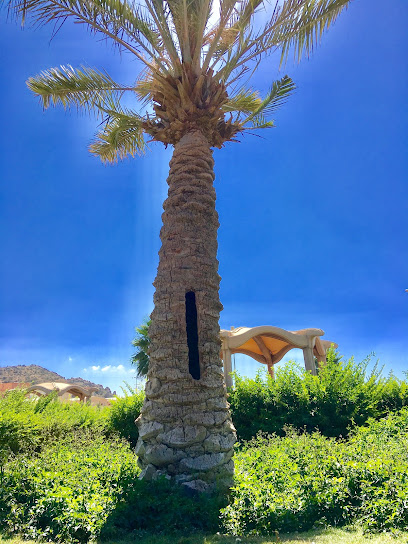
شلال جدر
Discover the serene beauty of Shalal Jadr, a captivating waterfall surrounded by lush gardens and playgrounds in Kherah Forest Park.
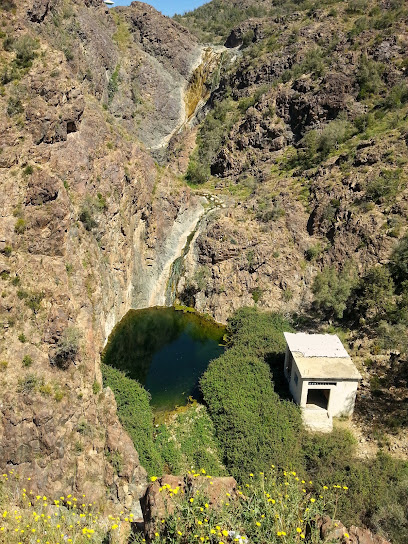
Prince Sultan bin Salman Park
Explore the lush beauty and tranquility of Prince Sultan bin Salman Park, a serene garden oasis perfect for relaxation and outdoor activities in Alrawdha.
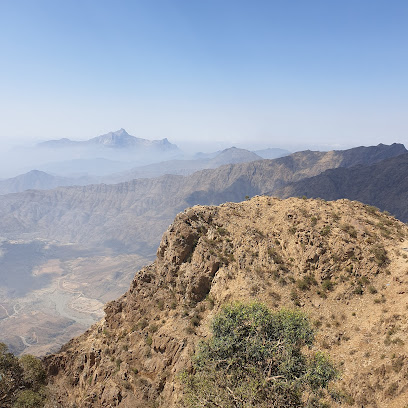
شلال قرية الحمدة
Explore the stunning Al-Hamda Waterfall in Al Bahah, Saudi Arabia, a natural wonder perfect for relaxation, picnics, and breathtaking photography.
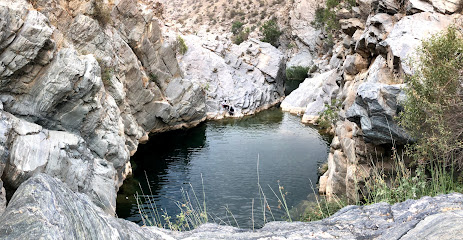
Shahba Park
Discover the serene beauty of Shahba Park, a lush green oasis perfect for relaxation, picnics, and outdoor activities in the heart of Shahbah, Saudi Arabia.
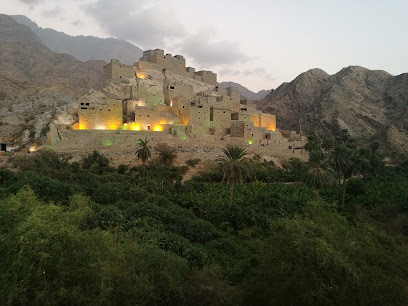
Humaida stairs
Discover the breathtaking views and rich heritage of Humaida Stairs, a must-see tourist attraction in Baljurashi, Saudi Arabia.
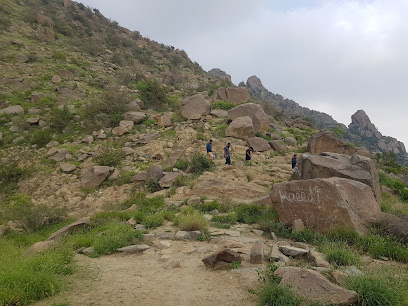
اعلى مطل في الباحة
Experience the unparalleled beauty of Al Bahah from its highest viewpoint, a stunning destination for nature lovers and photographers alike.
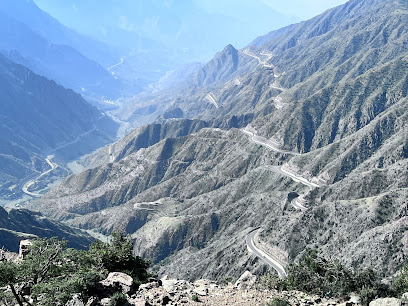
Almalad Castle
Discover Almalad Castle, a historical gem in Al Bahah, Saudi Arabia, where rich heritage meets stunning landscapes for an unforgettable experience.
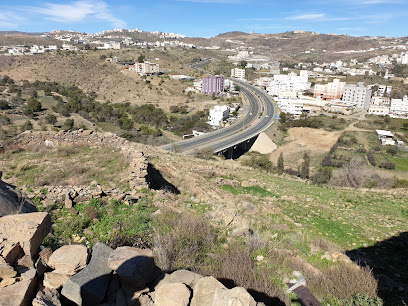
Al Hamda Water falls
Discover the breathtaking Al Hamda Waterfalls in Al Bahah, a stunning natural attraction perfect for relaxation, adventure, and unforgettable experiences in the heart of nature.
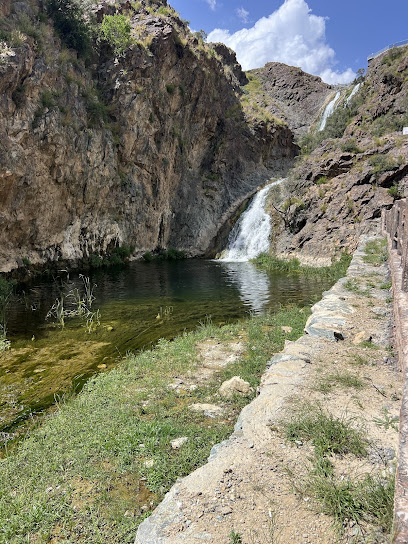
Essential places to dine
Fifth Season
Experience authentic Middle Eastern cuisine at Fifth Season in Al Bahah – a culinary delight nestled in the heart of Saudi Arabia.
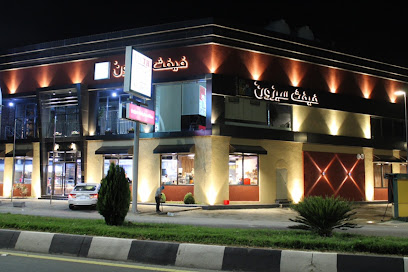
فول خلوفة الباحه
Experience authentic Saudi cuisine at فول خلوفة الباحه in Al Bahah – where every bite tells a story of tradition and flavor.
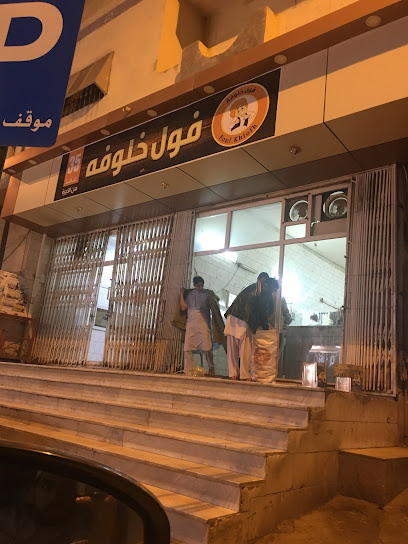
Soul
Experience the vibrant flavors of Al-Baha at Soul – where tradition meets modernity in every dish.
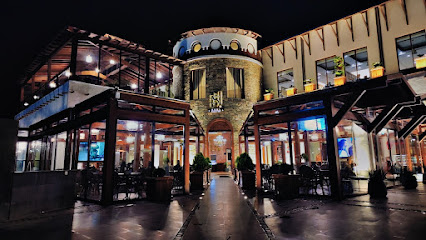
Albaik
Discover the deliciousness of Albaik in Al Bahah - where fast food meets authentic flavors!
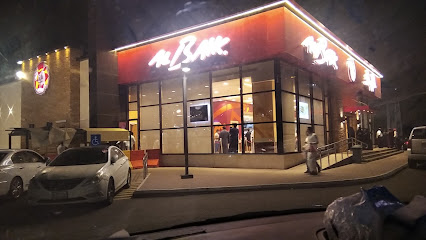
McDonald's
Discover the comfort of familiar fast food at McDonald's Al Bahah—perfect for breakfast or any meal during your travels.
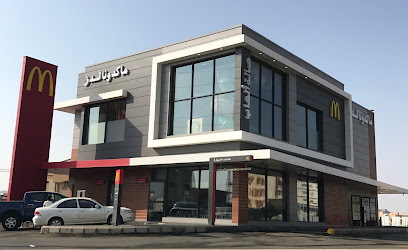
Al Tazaj
Savor the authentic tastes of Saudi Arabia at Al Tazaj, where grilled chicken meets rich flavors in a welcoming setting.
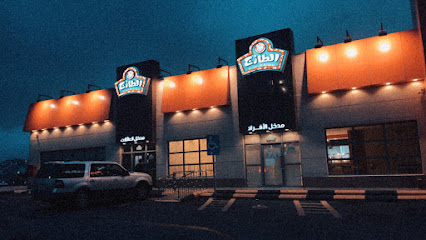
Hashi Basha
Discover Hashi Basha in Al Bahah: where authentic Saudi flavors meet modern dining in a vibrant atmosphere.
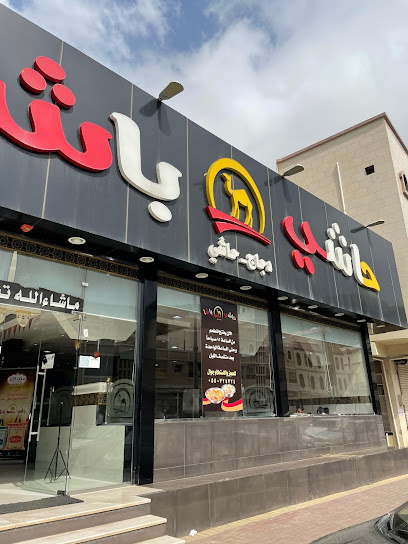
alnawras restaurant for sea food
Savor fresh seafood delicacies at Al Nawras Seafood Restaurant in Al Bahah – where every bite tells a story of coastal charm.
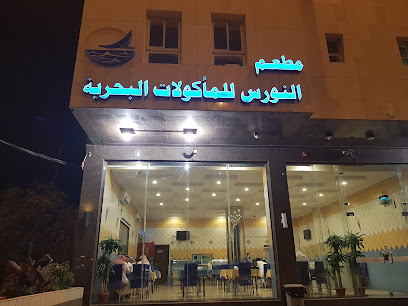
مطاعم ومطابخ السعودية
Experience authentic Saudi Arabian cuisine at مطاعم ومطابخ السعودية in Al Bahah—where tradition meets flavor in every dish.
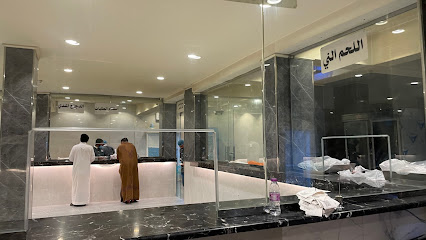
سكستي برجر | sixty burger
Discover Sixty Burger in Al Bahah: where fresh ingredients meet bold flavors in a cozy dining experience perfect for all burger enthusiasts.
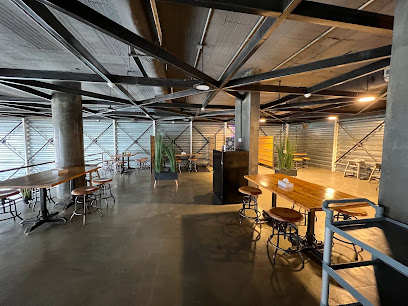
مطعم باب اليمن للمأكولات الشعبية
Savor authentic Yemeni cuisine at مطعم باب اليمن للمأكولات الشعبية, renowned for its delicious mutton barbecue and warm atmosphere in Al Bahah.
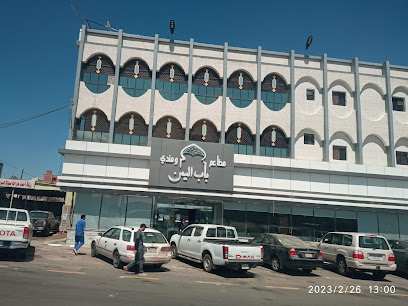
ORFA RESTAURANT
Discover authentic Syrian flavors at Orfa Restaurant in Al Bahah - a delightful dining experience awaits you.
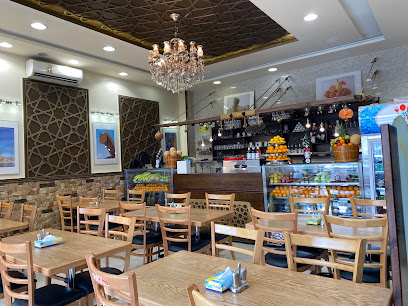
Al Bustan Restaurant - مطعم البستان
Experience the rich flavors of Middle Eastern cuisine at Al Bustan Restaurant in Al Baha - where every dish tells a story.
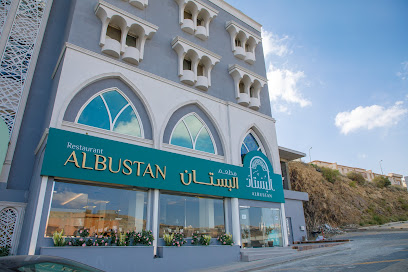
RUST | رسـت
Experience exquisite Middle Eastern flavors at RUST | رسـت in Al Bahah - where every meal tells a story.
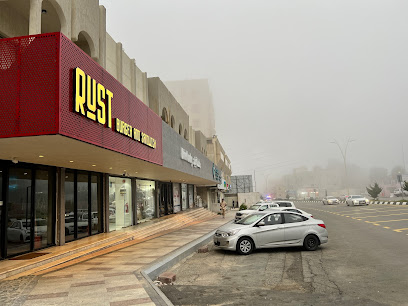
Pizza Rayyan
Discover the flavors of Al Bahah at Pizza Rayyan – where delicious pizzas meet irresistible pastries in a warm atmosphere.
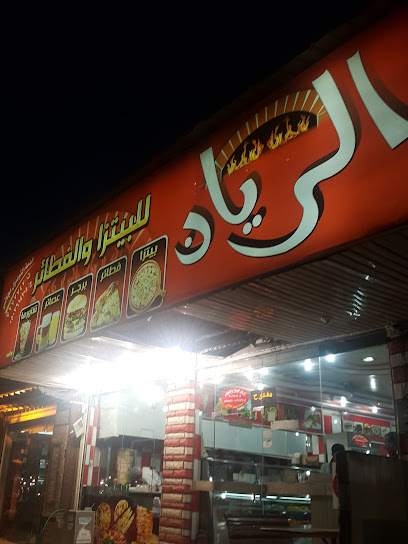
Markets, malls and hidden boutiques
Ghunaim Mall
Discover the essence of Al Bahah at Ghunaim Mall, where shopping, dining, and cultural experiences come together in a vibrant setting.
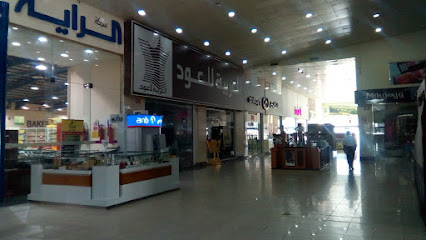
الفيصل ستور AL FAISAL STORE
Explore Al Faisal Store in Al Bahah for a fantastic selection of electronics, gadgets, and expert advice in a vibrant shopping atmosphere.
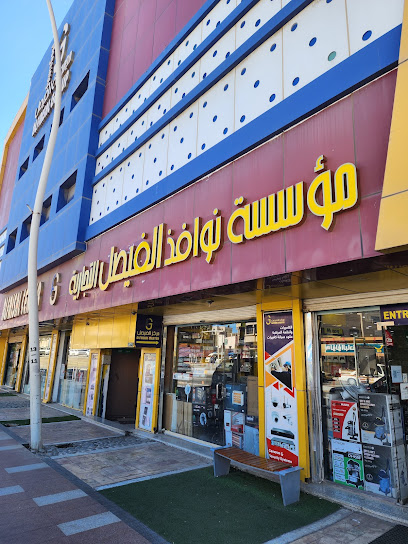
LULU ALBAHA
Discover the essence of Al Bahah at LULU ALBAHA, a vibrant supermarket filled with local flavors and international delights.
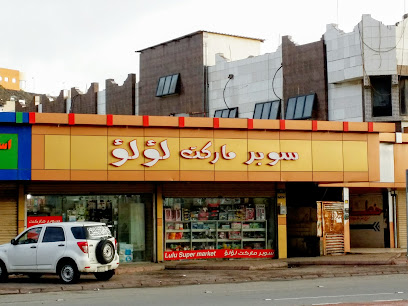
Centrepoint
Explore Centrepoint in Al Bahah for a unique shopping experience featuring fashion, beauty, and essential items for the whole family.
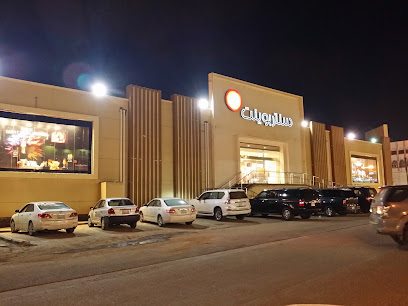
Universal Cold Store Al baha branch
Explore the flavors of Al Bahah at Universal Cold Store, your one-stop grocery destination for fresh produce and local products.
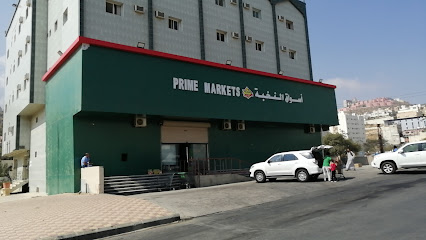
Diamond Avenue
Explore the lively Diamond Avenue Shopping Mall in Al Bahah for an unforgettable shopping and dining experience filled with excitement and variety.
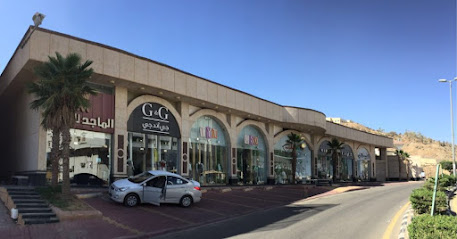
Women's Market
Discover the Women's Market in Al Bahah, a vibrant shopping destination where culture, crafts, and local cuisine come together for an unforgettable experience.
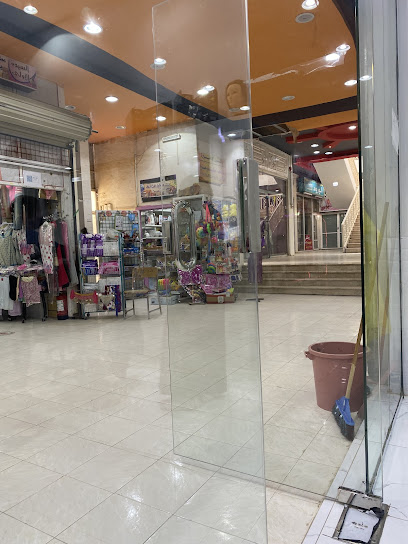
Gold Market
Discover the charm of Al Bahah's Gold Market, where exquisite jewelry meets rich cultural heritage in a vibrant shopping experience.
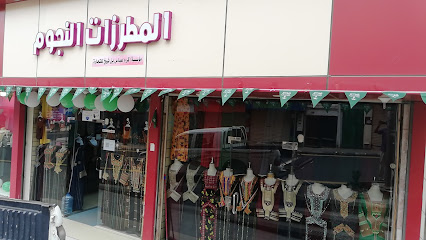
Boulevard Al Baha
Explore Boulevard Al Baha, a vibrant shopping mall in Al Bahah, blending local charm with modern retail experiences and delightful dining options.
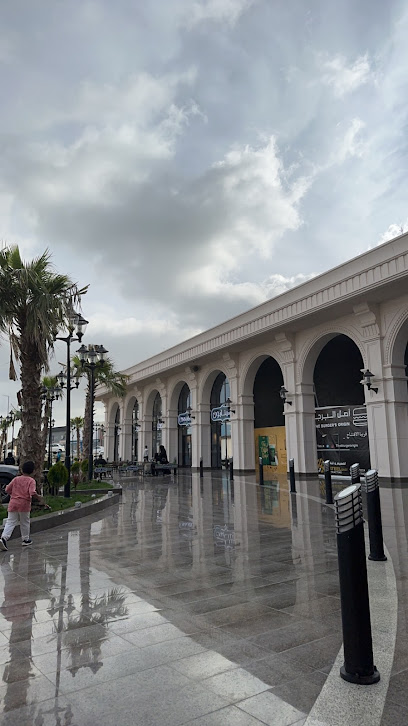
العربية للعود |Arabian Oud
Explore the enchanting world of Arabian fragrances at Arabian Oud, a premier perfume store in Al Bahah, offering exquisite scents and unmatched expertise.
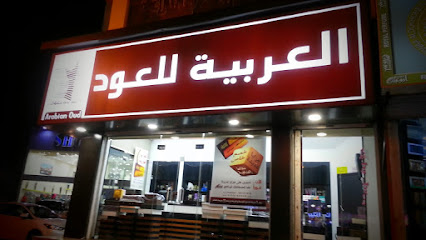
انتيكا
Explore a world of music at انتيكا, Al Bahah's premier musical instrument store, where creativity and culture come together.
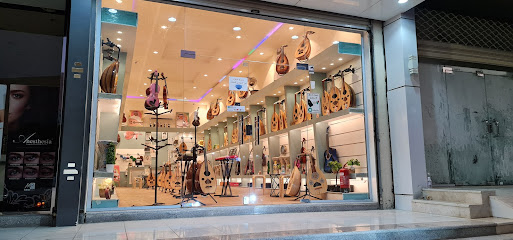
الرقيب للساعات
Explore a world of exquisite timepieces at الرقيب للساعات, Al Bahah's leading watch store offering luxury and style for every occasion.
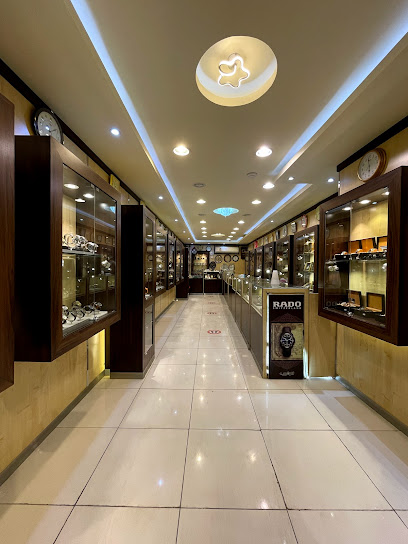
متجر رهف للورود
Discover the beauty of gifting at متجر رهف للورود, where elegant floral arrangements meet exquisite gift wrapping in Al Bahah.
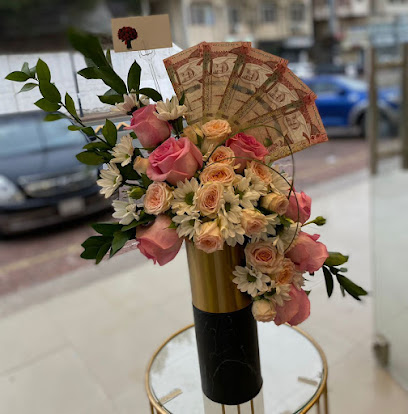
White rose
Discover unique gifts and local crafts at the White Rose Gift Shop in Al Bahah, a perfect stop for memorable souvenirs and cultural insights.

تاج محل للجلابيات
Explore the heart of Arabian fashion at Taj Mahal for Jalabiyas, where tradition meets modern style in the vibrant Al Bahah market.
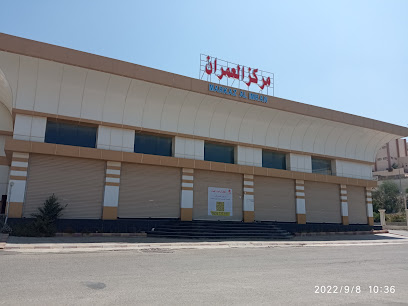
Essential bars & hidden hideouts
Fifth Season
Experience the rich flavors of Middle Eastern cuisine at Fifth Season, Al Bahah's finest dining destination with an inviting atmosphere.
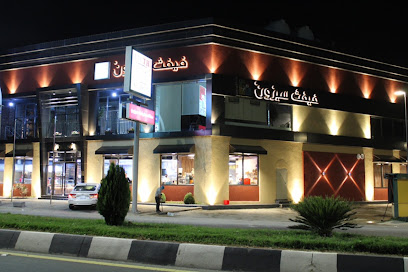
McDonald's
Discover the familiar flavors of McDonald's in Al Bahah, combining classic fast food with a unique local twist, perfect for all travelers.
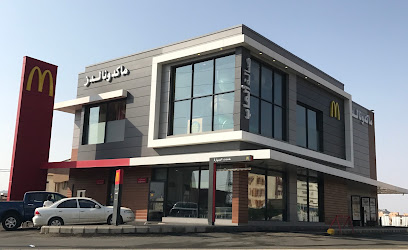
سكستي برجر | sixty burger
Experience the best burgers in Al Bahah at Sixty Burger, where flavor meets friendly service in a lively atmosphere.
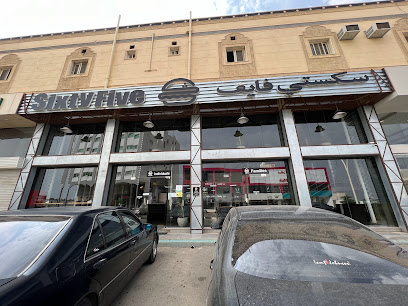
Al Bustan Restaurant - مطعم البستان
Discover authentic Saudi cuisine at Al Bustan Restaurant, a must-visit dining destination in Al Baha offering a delightful culinary experience.
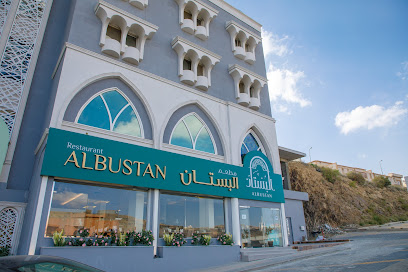
RUST | رسـت
Savor the exquisite flavors of Saudi cuisine at RUST | رسـت, a culinary gem in Al Bahah offering a delightful mix of traditional and modern dishes.
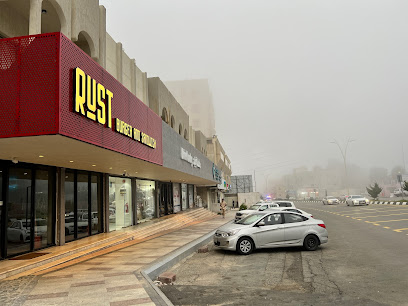
Latino
Discover the authentic taste of Mexico at Latino, a must-visit restaurant in Al Bahah serving delicious dishes in a vibrant atmosphere.
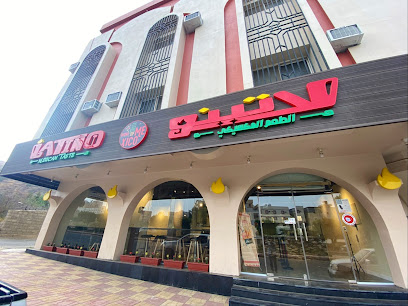
Location Restaurant مطعم لوكيشن
Experience the rich flavors of Asian and Middle Eastern cuisine at Location Restaurant in Al Bahah, a culinary delight for every traveler.
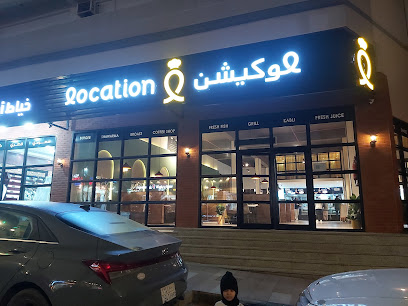
GLITCH BURGER
Experience the unique fusion of flavors at GLITCH BURGER, the perfect dining spot for burger lovers in Al Bahah, Saudi Arabia.
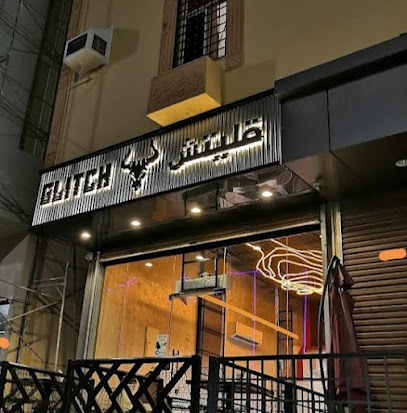
Al Najah Broast بروست النجاح
Experience the authentic taste of Saudi cuisine at Al Najah Broast, a beloved restaurant in Al Bahah, where every dish is crafted with passion.
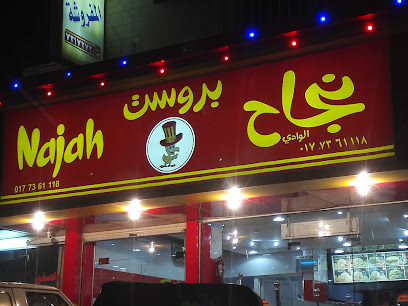
شقف
Experience the culinary delights of Shafq in Al Bahah, where local flavors meet refreshing juice creations in a warm, inviting atmosphere.
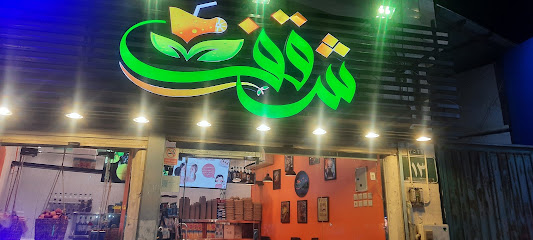
Shawarma and Tacos شاورما & تاكوس
Experience the delicious fusion of Middle Eastern and Mexican cuisine at Shawarma and Tacos in Al Bahah, a must-visit for food lovers.
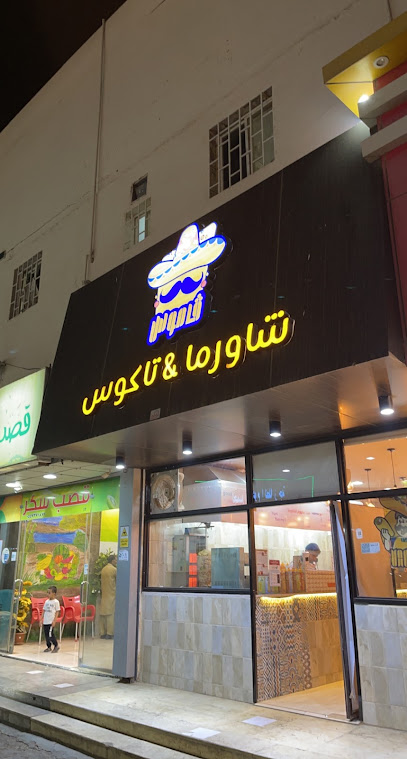
نوني ( ورق عنب - ملفوف )
Experience the vibrant flavors of vegan hot pot at Noni in Al Bahah, where every meal is a delightful culinary adventure.
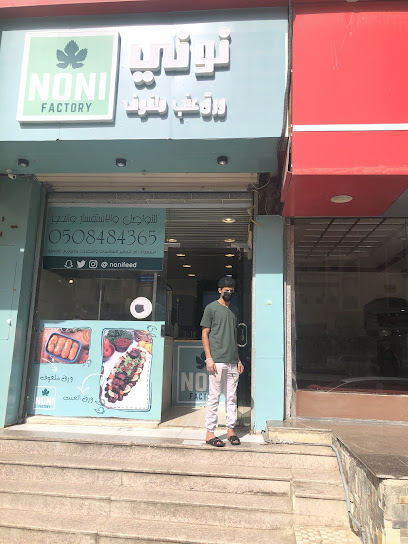
special meat
Experience the best of Korean cuisine at Special Meat in Al Bahah, featuring succulent beef, flavorful chicken, and a warm, inviting atmosphere.
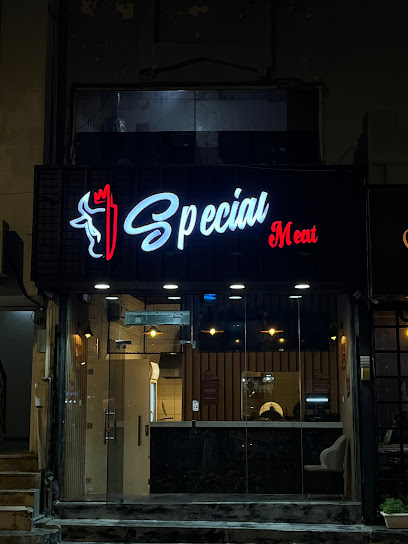
نكهة البطاط المشوي للبطاطس والعصائر
Discover the authentic flavors of Al Bahah at نكهة البطاط المشوي, where grilled potatoes meet refreshing juices in a vibrant bar setting.
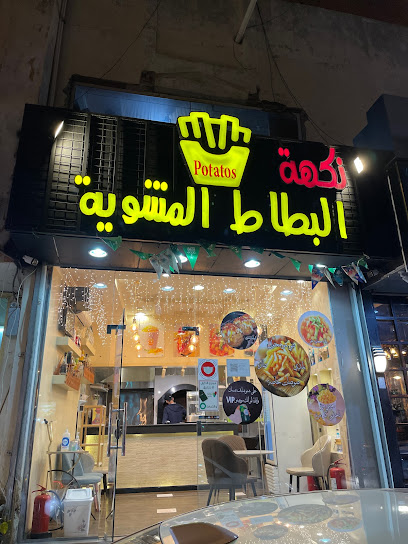
Fish Shop
Experience the essence of Al Bahah with fresh, delectable seafood at the Fish Shop, a culinary gem in the heart of the Town Center.
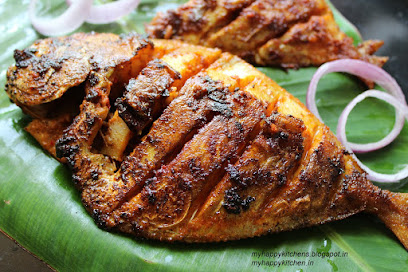
Local Phrases
-
- Helloمرحبا
[Marhaba] - Goodbyeوداعا
[Wadaan] - Yesنعم
[Naam] - Noلا
[La] - Please/You're welcomeمن فضلك/على الرحب والسعة
[Min fadlik/Ala al-rahb was-sa'ah] - Thank youشكرا
[Shukran] - Excuse me/Sorryعذرا
[Aathiraa] - How are you?كيف حالك؟
[Kayfa halak?] - Fine. And you?بخير. وأنت؟
[Bekhair. Wa ant?] - Do you speak English?هل تتحدث الإنجليزية؟
[Hal tatahadath al-ingliziyya?] - I don't understandأنا لا أفهم
[Ana la afham]
- Helloمرحبا
-
- I'd like to see the menu, pleaseأريد أن أرى القائمة، من فضلك
[Aridu an ara al-qa'imah, min fadlik] - I don't eat meatأنا لا آكل اللحوم
[Ana la akl al-lahum] - Cheers!في صحتك
[Fi sahtak] - I would like to pay, pleaseأود أن أدفع، من فضلك
[Awd an adfa', min fadlik]
- I'd like to see the menu, pleaseأريد أن أرى القائمة، من فضلك
-
- Help!النجدة!
[Al-najdah!] - Go away!انصرف!
[Ansuraf!] - Call the Police!اتصل بالشرطة!
[Itsal bi al-shurta!] - Call a doctor!اتصل بطبيب!
[Itsal bi tabib!] - I'm lostأنا ضائع
[Ana daa'ia] - I'm illأنا مريض
[Ana mareed]
- Help!النجدة!
-
- I'd like to buy...أود أن أشتري...
[Awd an ashtari...] - I'm just lookingأنا فقط أتطلع
[Ana faqat attala] - How much is it?بكم هذا؟
[Bikam hadha?] - That's too expensiveهذا غالي جدا
[Hadha ghali jiddan] - Can you lower the price?هل يمكنك خفض السعر؟
[Hal yumkinuk khafd al-sa'r?]
- I'd like to buy...أود أن أشتري...
-
- What time is it?كم الساعة؟
[Kam al-saa'ah?] - It's one o'clockالساعة الواحدة
[Al-saa'ah al-wahidah] - Half past (10)العاشرة والنصف
[Al-ashirah wan-nisf] - Morningالصباح
[Al-sabah] - Afternoonالعصر
[Al-asr] - Eveningالمساء
[Al-masaa] - Yesterdayالبارحة
[Al-barhih] - Todayاليوم
[Al-yawm] - Tomorrowغدا
[Ghadan] - 1واحد
[Wahid] - 2اثنان
[Ithnan] - 3ثلاثة
[Thalatha] - 4أربعة
[Arba'ah] - 5خمسة
[Khamsah] - 6ستة
[Sitah] - 7سبعة
[Sab'ah] - 8ثمانية
[Thamaniyah] - 9تسعة
[Tis'ah] - 10عشرة
[Asharah]
- What time is it?كم الساعة؟
-
- Where's a/the...?أين ...؟
[Ayna ...?] - What's the address?ما هو العنوان؟
[Ma huwa al-ainan?] - Can you show me (on the map)?هل يمكنك أن تريني (على الخريطة)؟
[Hal yumkinuk an tareeni (ala al-kharitah)?] - When's the next (bus)?متى يأتي الحافلة القادمة؟
[Mata yaati al-hafilah al-qadimah?] - A ticket (to ....)تذكرة (إلى ....)
[Tazkirah (ila ....)]
- Where's a/the...?أين ...؟
History of Al Baha
-
Al Baha's history traces back to ancient times, with evidence of human settlements dating back thousands of years. Archaeological findings, such as stone tools and pottery, indicate that the area was inhabited by early human communities who relied on agriculture and trade.
-
During the early centuries AD, Al Baha came under the influence of the Himyarite Kingdom, a powerful South Arabian state. The Himyarites were known for their advanced agricultural practices and construction of impressive fortifications, some of which can still be seen in the region today.
-
With the advent of Islam in the 7th century, Al Baha became an integral part of the Islamic world. The region saw the rise of various tribal societies, such as the Ghamid and Zahran tribes, which played significant roles in the political and social dynamics of the area.
-
During the 16th century, Al Baha fell under Ottoman control, which left a lasting impact on its architecture and culture. The Ottomans constructed forts, watchtowers, and administrative buildings, many of which still stand today as a testament to their influence in the region.
-
In the early 20th century, Al Baha became part of the newly established Kingdom of Saudi Arabia under the leadership of King Abdulaziz Al Saud. This period marked significant development and modernization in the region, including the construction of roads, schools, and healthcare facilities.
-
Al Baha is renowned for its rich cultural heritage, which is celebrated through various festivals and traditions. The Al Baha Summer Festival, for example, showcases local music, dance, and crafts, providing a glimpse into the vibrant cultural life of the region.
-
The traditional architecture of Al Baha, characterized by stone houses and intricate wooden carvings, reflects the region’s unique cultural identity. Villages like Dhee Ayn, known as the Marble Village, offer visitors an opportunity to explore well-preserved traditional structures and learn about the local way of life.
-
In recent years, Al Baha has seen a surge in tourism development, with efforts to preserve its natural beauty and historical sites while promoting sustainable tourism. The region's stunning landscapes, including the lush forests of Raghadan and the scenic mountains of Al-Soudah, attract visitors from around the world.
Al Baha Essentials
-
Al Baha is accessible by air, road, and rail. The nearest airport is Al Baha Domestic Airport, which has regular flights connecting to major Saudi cities like Riyadh and Jeddah. From the airport, you can take a taxi or rent a car to reach the city center, which is approximately 45 kilometers away. Alternatively, you can drive to Al Baha from major cities such as Jeddah (around 4 hours) or Riyadh (around 9 hours). Public buses operated by SAPTCO also connect Al Baha with other cities in Saudi Arabia.
-
Once in Al Baha, you can explore the city using taxis, which are readily available and relatively affordable. For a more flexible option, consider renting a car. Public buses are limited but do operate within the city and to nearby towns. Walking is also a viable option for exploring the compact city center and its immediate surroundings.
-
The official currency in Saudi Arabia is the Saudi Riyal (SAR). Credit and debit cards are widely accepted in hotels, restaurants, and larger shops. However, it's advisable to carry some cash, especially when visiting smaller establishments and markets. ATMs are plentiful throughout Al Baha, allowing you to withdraw cash as needed.
-
Al Baha is generally a safe destination for tourists. However, like any other city, it's important to stay vigilant. Avoid walking alone at night in unfamiliar areas and keep an eye on your belongings in crowded places. There are no specific high-crime areas targeting tourists, but standard precautions should still be taken.
-
In case of emergency, dial 997 for medical emergencies, 998 for fire, and 999 for police assistance. Al Baha has several hospitals and medical centers that provide emergency services. It's recommended to have travel insurance that covers medical emergencies. For minor health issues, pharmacies are available throughout the city where you can purchase over-the-counter medications.
-
Fashion: Do dress modestly, especially in public areas. Women should wear abayas and headscarves, while men should avoid wearing shorts in public. Religion: Do respect local customs and traditions. Avoid public displays of affection and follow the local prayer times. Public Transport: Do be respectful and give up your seat to elderly passengers. Don’t eat or drink on public transport. Greetings: Do greet people with a handshake. For men, a slight bow of the head is also a sign of respect. Eating & Drinking: Do try local delicacies and accept food offerings graciously. Don’t refuse hospitality, as it is considered impolite.
-
To experience Al Baha like a local, visit the local souqs (markets) where you can buy traditional Saudi goods and fresh produce. Engage with locals, as they are often friendly and willing to share stories about the region's history and culture. Don’t miss visiting the historical village of Dhee Ayn, known for its ancient stone houses, and the picturesque Raghadan Forest Park, which offers stunning views and picnic spots.
Trending Landmark in Al Baha
-
Raghadan Forest Park
-
Prince Hussam Park
-
Khairah Forest Park
-
Thee Ain( Zee Ain or Dhee Ain) Ancient Village
-
Park Prince Mishari Bin Saud
-
Al Hussam Public Park
-
Prince Mohammed bin Saud Park
-
شلال جدر
-
Prince Sultan bin Salman Park
-
شلال قرية الحمدة
-
Bridge Botanical Garden
-
حديقة الشلال
-
Shahba Park
-
Hajjad Continental Plaza Hotel
-
Humaida stairs
Nearby Cities to Al Baha
-
Things To Do in Taif
-
Things To Do in Abha
-
Things To Do in Mecca
-
Things To Do in Khamis Mushait
-
Things To Do in Jeddah
-
Things To Do in Jizan
-
Things To Do in Najran
-
Things To Do in Medina
-
Things To Do in Keren
-
Things To Do in Yanbu
-
Things To Do in Asmara
-
Things To Do in Sana'a
-
Things To Do in Dekemhare
-
Things To Do in Adi Keyh
-
Things To Do in Mendefera







